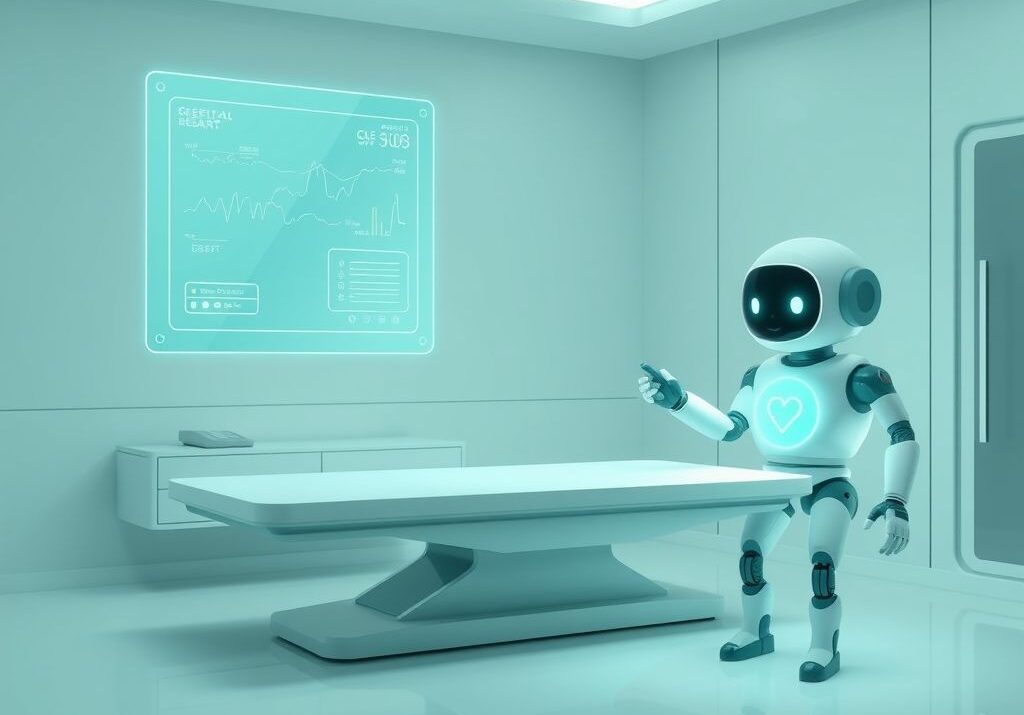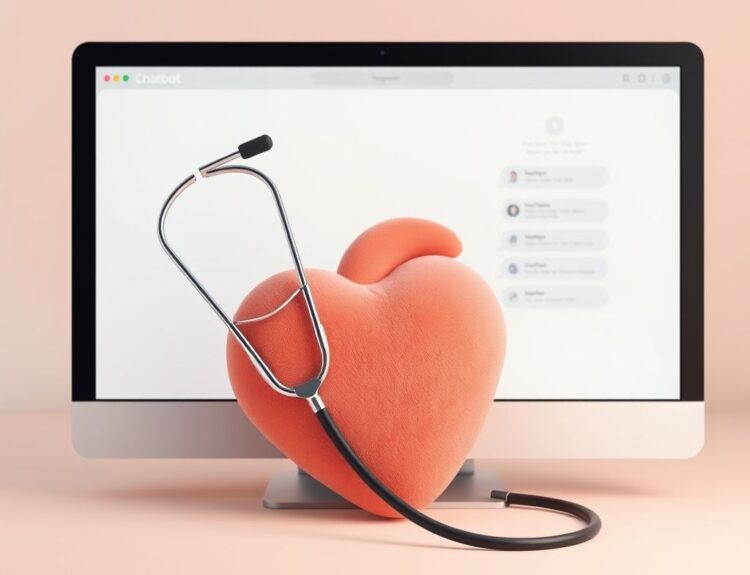Ever felt like something’s missing when you’re chatting with a bot? Turns out, when it comes to your health, that “something” is pretty crucial: human understanding. I stumbled across a fascinating Oxford study recently that really highlights this. It suggests patients using chatbots to figure out their medical issues might actually end up worse off than if they’d used good old-fashioned methods.
Now, I’m all for using technology to make healthcare more accessible. But this study, detailed in a recent VentureBeat article, gave me pause. It seems we’re not quite at the point where AI can fully replace a doctor’s intuition and experience.
Why is this important? Well, imagine you’re feeling unwell. You type your symptoms into a chatbot, hoping for quick answers. But what if the bot misses a subtle cue, ignores a vital piece of information, or provides a diagnosis that’s just plain wrong? The consequences could be serious.
We often hear about the promise of AI in healthcare. For example, a 2023 study published in JAMA Internal Medicine found that AI chatbots demonstrated high accuracy in diagnosing common medical conditions. However, this Oxford study reminds us that these results can be misleading.
Here’s the thing: Healthcare is complex. It’s not just about plugging symptoms into a formula. It’s about understanding the whole person – their history, their lifestyle, their emotional state. It’s about building trust and providing reassurance. These are things that chatbots, at least for now, struggle to do. A recent report by the Kaiser Family Foundation found that nearly half of adults in the U.S. have low health literacy, meaning they may struggle to interpret and act on health information provided by chatbots. This is where the human element becomes even more critical.
Here are my key takeaways from this study:
- Human Touch Matters: Chatbots are good for quick info, but they can’t replace a doctor’s empathy and understanding.
- Context is Key: AI often misses the nuances of individual cases, leading to inaccurate assessments.
- Health Literacy is Crucial: People need to understand the information they receive from chatbots to make informed decisions.
- Don’t Self-Diagnose: Always consult a healthcare professional for serious medical concerns.
- AI is a Tool, Not a Replacement: Think of chatbots as helpful assistants, not as complete substitutes for doctors.
The study doesn’t say AI has no place in healthcare. Not at all! It simply underscores the importance of careful testing and the need to always prioritize human oversight. The future of healthcare likely involves a blend of AI and human expertise, working together to provide the best possible care. But for now, don’t ditch your doctor for a bot just yet. Your health deserves a human touch.
FAQs About Chatbots and Healthcare
1. Are chatbots safe to use for medical advice?
Chatbots can be useful for general health information, but they should not replace professional medical advice. Always consult a doctor for diagnosis and treatment.
2. What are the benefits of using chatbots in healthcare?
Chatbots can provide quick answers to simple questions, remind you to take medication, and offer basic health information, improving healthcare accessibility.
3. What are the risks of using chatbots for medical advice?
Inaccurate diagnoses, missed symptoms, and a lack of personalized care are potential risks. Chatbots cannot replace a doctor’s expertise.
4. Can chatbots diagnose medical conditions accurately?
While some studies show chatbots can diagnose common conditions, they are not always accurate and should not be relied upon for critical health decisions.
5. How can I ensure the information I get from a chatbot is reliable?
Check the source of the chatbot. Is it affiliated with a reputable healthcare organization? Cross-reference the information with other reliable sources.
6. What should I do if a chatbot gives me concerning medical advice?
Always consult a healthcare professional if you receive concerning advice from a chatbot. Do not rely solely on its guidance.
7. Will chatbots eventually replace doctors?
It’s unlikely. Chatbots can assist doctors, but they lack the human empathy and comprehensive understanding needed for complete patient care.
8. What role does human oversight play in chatbot healthcare applications?
Human oversight is essential to ensure the accuracy and appropriateness of chatbot advice, especially in complex or critical cases.
9. How does health literacy affect the use of chatbots for medical advice?
Low health literacy can make it difficult for people to understand and act on chatbot-provided information, leading to potential errors in self-care.
10. What are the ethical considerations surrounding the use of chatbots in healthcare?
Ethical considerations include data privacy, algorithmic bias, and the potential for chatbots to provide inaccurate or harmful advice, necessitating careful regulation and oversight.







